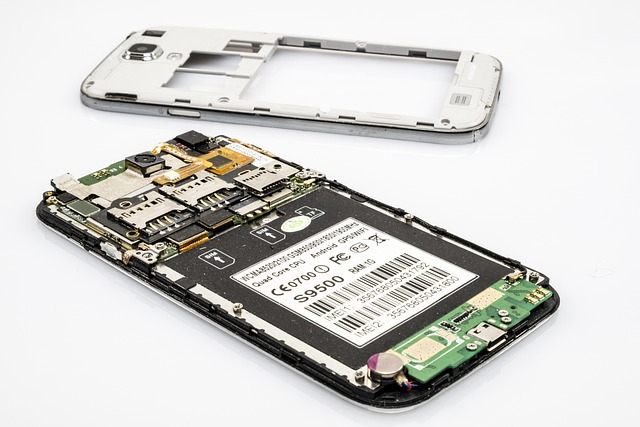Daycare centers in Rhode Island face unique challenges balancing marketing efforts with strict "Do Not Call" laws, crucial for consumer protection. Engaging Do Not Call Attorneys in Rhode Island helps centers navigate regulations, maintain parent relationships, and avoid legal issues. Effective strategies include meticulous record-keeping, transparent consent processes, and clear opt-out mechanisms for all contact methods. Misconceptions about these laws, which extend beyond cold calling, must be addressed, with compliance ensured through robust privacy policies, staff training, and explicit consent for data sharing.
“Johnston: Navigating Do Not Call Laws for Local Daycare Centers” explores the intricate landscape of privacy regulations affecting early learning centers. In this comprehensive guide, we delve into the intricacies of Do Not Call laws from a local daycare operator’s perspective. From understanding legal obligations to leveraging the expertise of Do not call attorneys Rhode Island, this article offers practical strategies to ensure compliance while safeguarding parents’ sensitive information. Additionally, it clarifies common misconceptions and highlights best practices for protecting privacy in the daycare setting.”
Understanding Do Not Call Laws: A Local Daycare Center's Perspective
Johnston, like many towns in Rhode Island, has a vibrant community of local daycare centers that play a crucial role in nurturing young minds. However, these centers also face unique challenges when it comes to compliance with “Do Not Call” laws. These regulations, designed to protect consumers from unwanted sales or service calls, can be complex for businesses like daycare centers that rely on direct communication with parents.
Do Not Call attorneys in Rhode Island often advise local daycare providers to tread carefully in their marketing efforts. While it’s essential to connect with families and promote their services, they must also avoid potential legal pitfalls. By understanding the scope of these laws and seeking guidance from legal experts, daycare centers can ensure they maintain a positive relationship with parents while staying within regulatory boundaries.
The Role of Do Not Call Attorneys in Rhode Island
In Rhode Island, the role of do not call attorneys is pivotal in ensuring compliance with state and federal regulations designed to protect consumers from unwanted telemarketing calls. These legal experts specialize in navigating the complex landscape of Do Not Call laws, which are particularly relevant for local daycare centers that often need to connect with parents via phone. Their expertise lies in understanding exemptions and restrictions, helping businesses like daycares balance their marketing efforts with respect for privacy.
By engaging do not call attorneys in Rhode Island, daycare centers can avoid unintentional violations that may result in fines or damage to their reputation. These attorneys guide businesses on how to effectively implement do-not-call policies, manage caller identification, and honor consumer choices to opt-out of calls. Their insights enable daycares to foster strong relationships with parents while adhering to legal boundaries, fostering a harmonious connection between the centers and families they serve.
Compliance Strategies for Daycares: Avoiding Legal Pitfalls
Compliance with Do Not Call laws is a critical aspect of running a local daycare center in Rhode Island. To avoid legal pitfalls, daycares should implement robust strategies that go beyond mere compliance. One effective approach is to maintain detailed records of all communication with parents and guardians, ensuring transparency and consent at every step. This includes clearly communicating the purpose of any phone calls, texts, or emails, and providing an easy opt-out mechanism.
Additionally, daycares should stay updated on local and state regulations regarding privacy and data protection. Engaging the services of a reputable Rhode Island Do Not Call attorney can offer valuable guidance tailored to the specific needs and operations of the daycare. Regular training sessions for staff on compliance matters and staying vigilant against potential violations are also essential to maintaining a compliant environment.
Common Misconceptions About Do Not Call Regulations
Many business owners, especially in the childcare industry, often have misconceptions about Do Not Call laws and regulations. One common misunderstanding is that these laws do not apply to them or are not strictly enforced. However, daycares and other care facilities must adhere to strict guidelines regarding marketing and sales calls, including those made to potential clients. The primary purpose of Do Not Call laws is to protect consumers from unwanted and intrusive phone calls, ensuring they have control over their contact information.
Another misconception is that these regulations only restrict cold calling or telemarketing. In reality, they cover a wide range of communication methods, including automated calls, live operators, and text messages. Care centers must obtain explicit consent before contacting parents or guardians regarding their services, and failing to do so can result in legal repercussions, including fines and lawsuits. Engaging the services of a Rhode Island Do not call attorney is advisable for daycare owners to ensure they remain compliant with these often-misunderstood regulations.
Protecting Parents' Privacy: Best Practices for Daycare Centers
Protecting parents’ privacy is a paramount concern for daycare centers, especially in light of strict do not call laws in places like Rhode Island. These regulations are designed to safeguard individuals from unwanted telemarketing calls, but they also have implications for how childcare facilities communicate with parents. Best practices for daycare centers should include implementing robust privacy policies and ensuring that all staff members are trained on data protection measures. This includes obtaining explicit consent for any phone calls or text messages that share information about the child’s routine, attendance, or overall well-being.
Daycare centers should also establish clear guidelines for who can access parent contact details and for what purpose. Limiting access to authorized personnel only helps prevent unauthorized disclosure of private information. Moreover, utilizing secure communication channels and encryption for sensitive data is a prudent step in protecting parents’ privacy. By adhering to these best practices, Rhode Island daycare centers not only comply with do not call laws but also foster trust and transparency with the families they serve.






